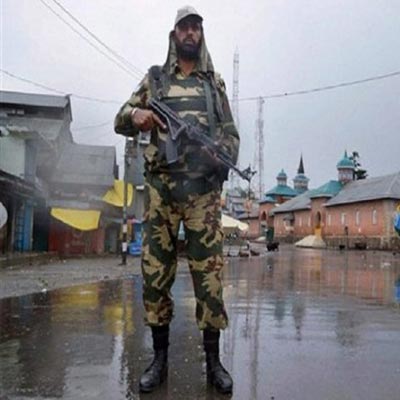Article 370 And 35(A) Scrapped, How Will It Change Kashmir?
By FnF Correspondent | PUBLISHED: 05, Aug 2019, 17:40 pm IST | UPDATED: 12, Aug 2019, 10:02 am IST
 Delhi: In a historic move, the government on Monday abolished Article 370 that gives special status to Jammu and Kashmir and moved a separate bill to bifurcate the state into two separate union territories of Jammu and Kashmir, and Ladakh. Major opposition parties have expressed resentment towards scrapping of Article 35A, which provides special rights to Jammu and Kashmir and have warned against ‘dire consequences’.Article 370 of the Constitution granted special status to Jammu and Kashmir whereby provisions of the Constitution which are applicable to other states are not applicable to J&K.
Delhi: In a historic move, the government on Monday abolished Article 370 that gives special status to Jammu and Kashmir and moved a separate bill to bifurcate the state into two separate union territories of Jammu and Kashmir, and Ladakh. Major opposition parties have expressed resentment towards scrapping of Article 35A, which provides special rights to Jammu and Kashmir and have warned against ‘dire consequences’.Article 370 of the Constitution granted special status to Jammu and Kashmir whereby provisions of the Constitution which are applicable to other states are not applicable to J&K.
As per this article, except for defence, foreign affairs, finance and communications, Parliament needs the state government's concurrence for applying all other laws.It was introduced in the Constitution on October 17, 1949.President Ram Nath Kovind has exercised his power under Clause 1 of Article 370 and with his order sections under Article 35A have been done away. Article 35 A provided special privileges to “permanent residents" of the state.
What are Articles 370 & 35A:
- Article 370 guarantees special status to Jammu and Kashmir and further restricts the Union government’s legislative powers to just three areas — defence, foreign affairs and communications. As a result, J&K adopted its own constitution in 1956
- Article 35A of the Indian Constitution is an article that empowers the Jammu and Kashmir state's legislature to define "permanent residents" of the state and provide special rights and privileges to those permanent residents. It was added to the Constitution through a Presidential Order on May 14, 1954.
- Article 35A also allows the government to issue certificates to long-time residents of the state. People who were living in Jammu and Kashmir in 1954 as well as those who spent at least 10 years thereafter qualify as permanent residents.
- Those who are not permanent citizens, they do not have the right to live permanently in Kashmir, buy real estate, get government jobs etc.
- Temporary citizens of the second province cannot even get scholarships· This article empowers Jammu and Kashmir State, stating that if a woman marries a permanent resident of another state, then her Kashmiri citizenship should be stripped off. However, according to an order of the Jammu and Kashmir High Court in 2002, the woman’s citizenship will not be scrapped, but her children will not get the rights.
- Though the case is sub judice, It is a possibility that the government brings a bill in Parliament to scrap Article 35A. It is important to learn that BJP in its manifesto and poll campaign has committed itself to its recision, there is speculation that the Centre will table a bill during the ongoing session
What will change with the withdrawal of Articles 370 & 35A?
- A citizen of any part of the country can buy land there i.e. can settle there
- Any citizen of the country can become a permanent citizen of Jammu and Kashmir
- To become a permanent citizen means that he will be able to invest, do business.
- One can get a government job in Jammu and Kashmir.
- J&K will not have a separate flag
- Centre will have right on land and police power in J7K
- A woman who marries a man from a different state will start getting a share in immovable assets
- It will politically give chance to all parties to rule the state and allow its development.
- The abrogation of the contentious articles would now put J&K at par with the likes of Delhi and Puducherry.
- Ladakh will no longer be a part or be associated with J&K and will be like Lakshadweep, Daman and Diu
- Since Ladakh is now a separate Union Territory, it won't have any legislature.
 Delhi: In a historic move, the government on Monday abolished Article 370 that gives special status to Jammu and Kashmir and moved a separate bill to bifurcate the state into two separate union territories of Jammu and Kashmir, and Ladakh. Major opposition parties have expressed resentment towards scrapping of Article 35A, which provides special rights to Jammu and Kashmir and have warned against ‘dire consequences’.
Delhi: In a historic move, the government on Monday abolished Article 370 that gives special status to Jammu and Kashmir and moved a separate bill to bifurcate the state into two separate union territories of Jammu and Kashmir, and Ladakh. Major opposition parties have expressed resentment towards scrapping of Article 35A, which provides special rights to Jammu and Kashmir and have warned against ‘dire consequences’.